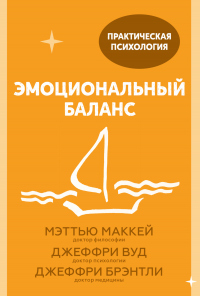Читать книгу "Что делает нас людьми - Леон Виндшайд"
Шрифт:
Интервал:
Закладка:
Killingsworth M., Gilbert D. A Wandering Mind is an Unhappy Mind // Science, 2010.
282
Brosnan S., De Waal F. Monkeys Reject Unequal Pay // Nature, 2003.
283
Это очень хорошо видно на тестовом видео здесь (примерно с 13-й минуты): ted.com/talks/frans_de_waal_moral_behavior_in_animals.
284
Gerber J. P. et al. A Social Comparison Theory Meta-Analysis 60+ Years On // Psychological Bulletin, 2018.
285
Callan M. J. et al. Age Differences in Social Comparison Tendency and Personal Relative Deprivation // Personality and Individual Differences, 2015.
286
Aurel M. Selbstbetrachtungen. Reclam. 2019.
287
Boers E. et al. Association of Screen Time and Depression in Adolescence // JAMA pediatrics, 2019.
288
Safi M. Goa Brings in «No-Selfie Zones» on Coast After Spate of Deaths // The Guardian, 26.06.2018 // theguardian.com/world/2018/jun/26/goa-india-no-selfie-zones-coast-deaths.
289
Barasch A. et al. How the Intention to Share can Undermine Enjoyment: Photo-Taking Goals and Evaluation of Experiences // Journal of Consumer Research, 2018.
290
Hamilton I. A. Silicon Valley Insiders Say Facebook, Snapchat, and Twitter Are Using «Behavioral Cocaine» to Turn People Into Addicts // Business Insider, 04.07.2018 // businessinsider.com/silicon-valley-insiders-tell-bbc-how-tech-firms-turn-users-into-addicts-2018-7.
291
Ozimek P. et al. How We Use Facebook to Achieve Our Goals: A Priming Study Regarding Emotion Regulation, Social Comparison Orientation, and Unaccomplished Goals // Current Psychology, 2020.
292
Brailovskaia J. et al. Less Facebook Use — More Well-Being and a Healthier Lifestyle? An Experimental Intervention Study // Computers in Human Behavior, 2020.
293
Diener E. et al. Happiness is the Frequency, Not the Intensity, of Positive Versus Negative Affect // Assessing Well-Being. Springer, Dordrecht, 2009.
294
Dunn E., Norton M. Happy Money: The Science of Happier Spending. Simon and Schuster, 2014.
295
Gilovich T. et al. A Wonderful Life: Experiential Consumption and the Pursuit of Happiness // Journal of Consumer Psychology, 2015; Lee J. C. et al. Experiential or Material Purchases? Social Class Determines Purchase Happiness // Psychological Science, 2018.
296
Whillans A. V. et al. Buying Time Promotes Happiness // Proceedings of the National Academy of Sciences, 2017.
297
Mogilner C. et al. Time, Money, and Subjective Well-Being // E. Diener et al., eds. Handbook of Well-Being. Noba Scholar Handbook Series: Subjective Well-Being. DEF Publishers, 2018.
298
Dunn E. et al. Spending Money on Others Promotes Happiness // Science, 2008.
299
Dunn E. et al. Spending Money on Others Promotes Happiness // Science, 2008.
300
Feinberg M. et al. Flustered and Faithful: Embarrassment as a Signal of Prosociality // Journal of Personality and Social Psychology, 2012.
301
Barnett M. A. et al. Effect of Inducing Sadness About Self or Other on Helping Behavior in High-and Low-Empathic Children // Child Development, 1982; Yee J. L., Greenberg M. S. Reactions to Crime Victims: Effects of Victims’ Emotional State and Type of Relationship // Journal of Social and Clinical Psychology, 1998.
302
Henniger N. E., Harris C. R. Can Negative Social Emotions Have Positive Consequences? An Examination of Embarrassment, Shame, Guilt, Jealousy, and Envy // W. Parrott, ed. The Positive Side of Negative Emotions. The Guilford Press, 2014.
303
Anwar Y. Feeling Bad About Feeling Bad Can Make You Feel Worse Media Relations, 10.08.2017 // news.berkeley.edu/2017/08/10/emotional-acceptance/.
304
Tamir M. et al. The Secret to Happiness: Feeling Good or Feeling Right? // Journal of Experimental Psychology: General, 2017.
305
Brooks A. C. How to Build A Life. Sit with Negative Emotions, Don’t Push Them Away // The Atlantic, 18.06.2020 // theatlantic.com/family/archive/2020/06/dont-push-away-your-negative-emotions/613180/.
306
Mogilner C. et al., 2018.
307
Bhattacharjee A., Mogilner C. Happiness from Ordinary and Extraordinary Experiences // Journal of Consumer Research, 2014.
308
Layous K. et al. Reframing the Ordinary: Imagining Time as Scarce Increases Well-Being // The Journal of Positive Psychology, 2018.
309
Diener E. et al. Advances and Open Questions in the Science of Subjective Well-Being. Collabra. Psychology. 2018; Oishi S. et al. The Optimum Level of Well-Being: Can People be Too Happy? // Diener E. The Science of Well-Being: The Collected Works of Ed Diener. Springer, Dordrecht, 2009.
310
Diener E., Biswas-Diener R. Happiness: Unlocking the Mysteries of Psychological Wealth. John Wiley & Sons, 2011.
311
Pelechano V. et al. Is it Possible to be Too Happy? Happiness, Personality, and Psychopathology // International Journal of Clinical and Health Psychology, 2013.
Внимание!
Сайт сохраняет куки вашего браузера. Вы сможете в любой момент сделать закладку и продолжить прочтение книги «Что делает нас людьми - Леон Виндшайд», после закрытия браузера.




